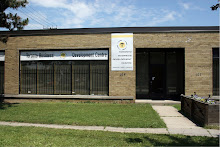 Perhaps you are kicking back to enjoy a New Years celebration, spend time with the family or have some quiet moments to yourself to reflect on the past year. Maybe it will be a combination of all of the above.
Perhaps you are kicking back to enjoy a New Years celebration, spend time with the family or have some quiet moments to yourself to reflect on the past year. Maybe it will be a combination of all of the above.However you use the time, best wishes for a happy and successful 2011 on behalf of Toronto Business Development Centre.
Before leaving the office for the last time this year, here is a thought to consider for the top of your 2011 to do list.
Promise yourself that your business will not sacrifice price without getting something in return that is equal to or greater than the profit you would be loosing by lowering price just to remain competitive. Negotiate wisely and pragmatically.
- Ask for additional volume commitments
- Propose an exclusive supply contract with price escalation clauses
- Negotiate better payment terms
- Consider a volume rebate structure
- Can you supply other products and/or services
- If the negotiation is due to a competitive situation, be sure you are comparing apples to apples
Good selling,
Richard










